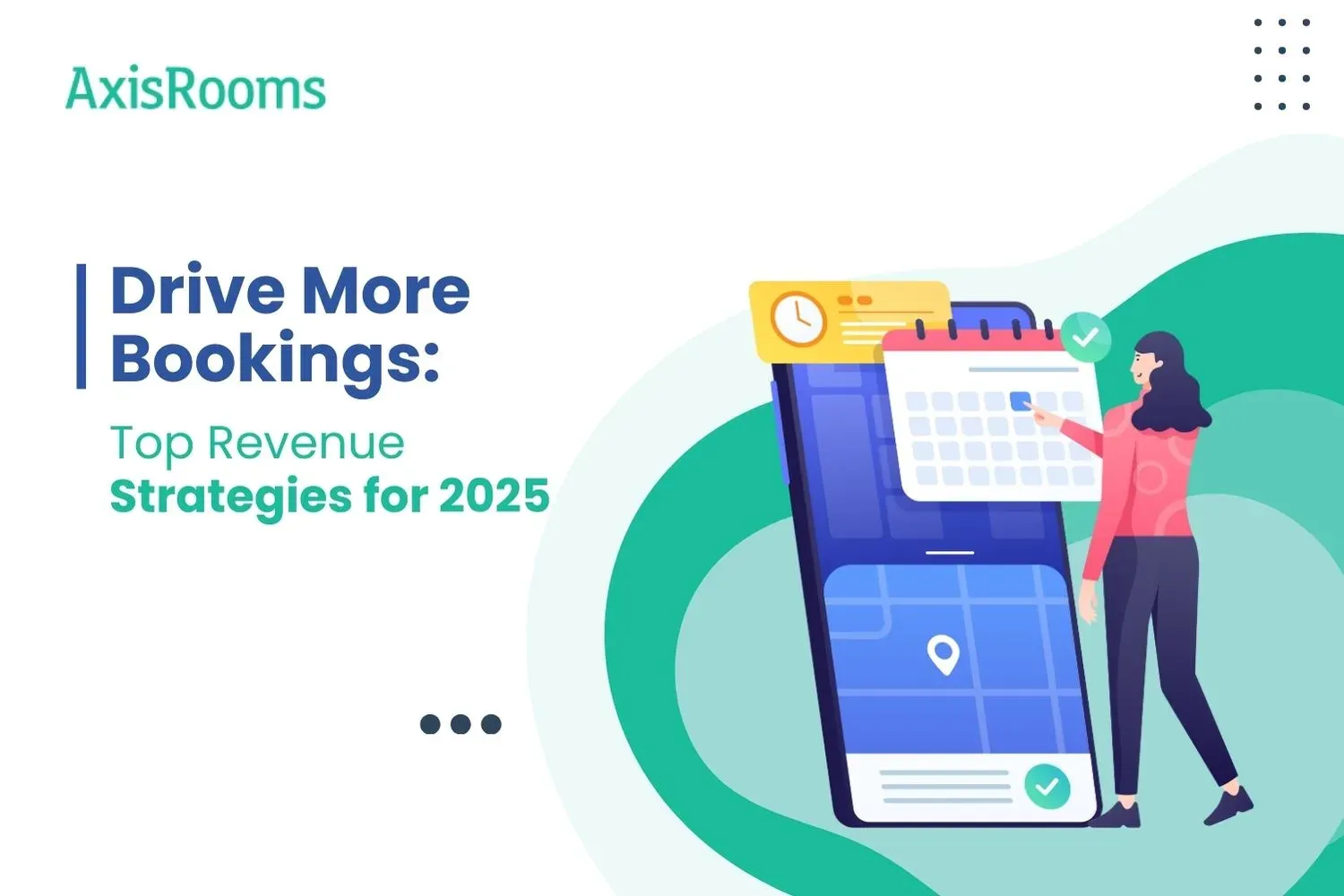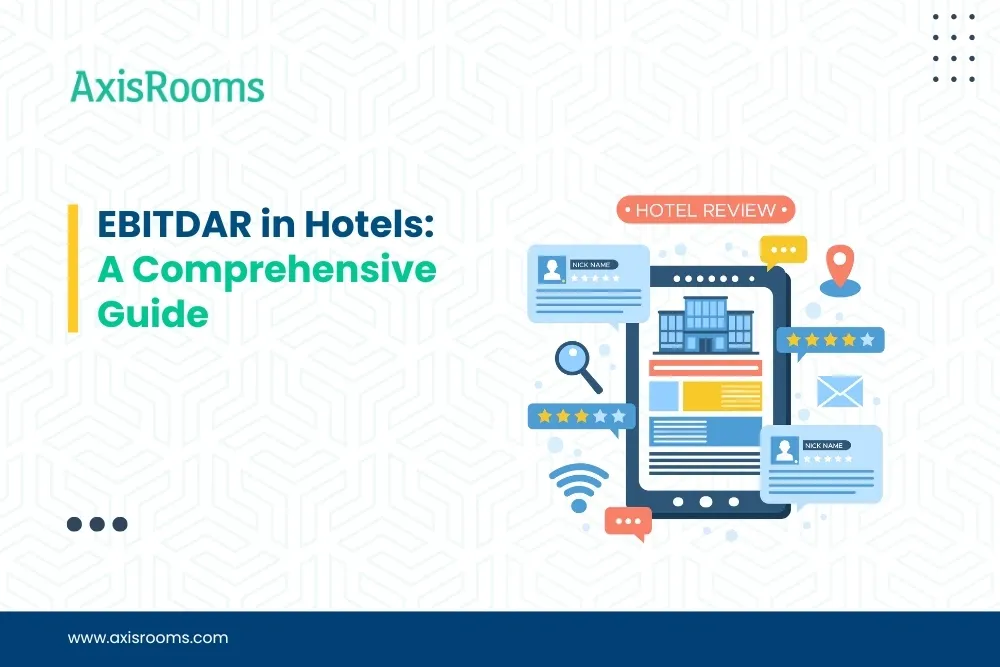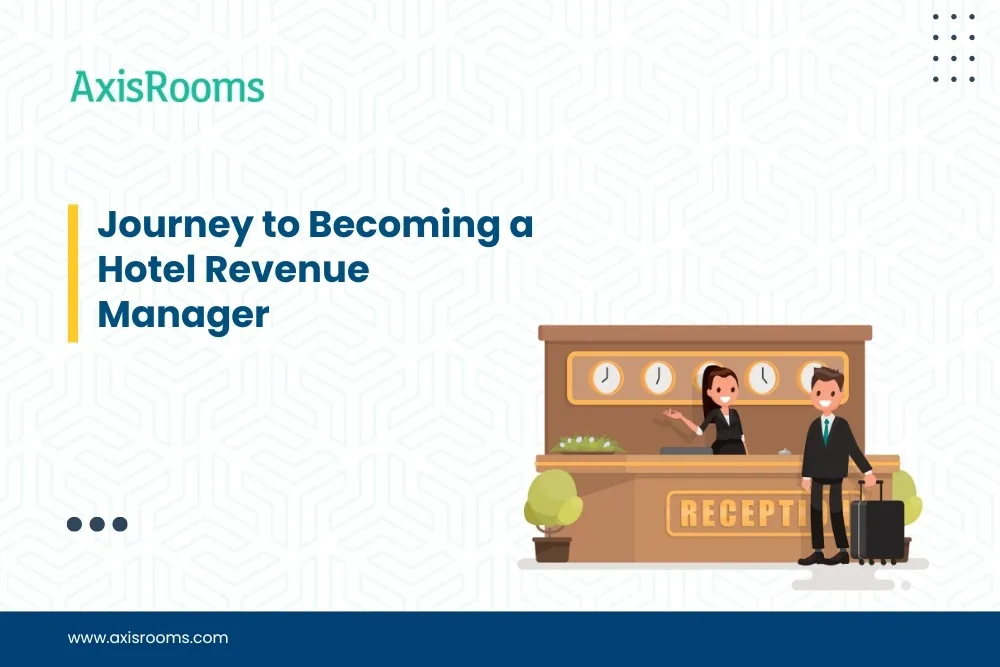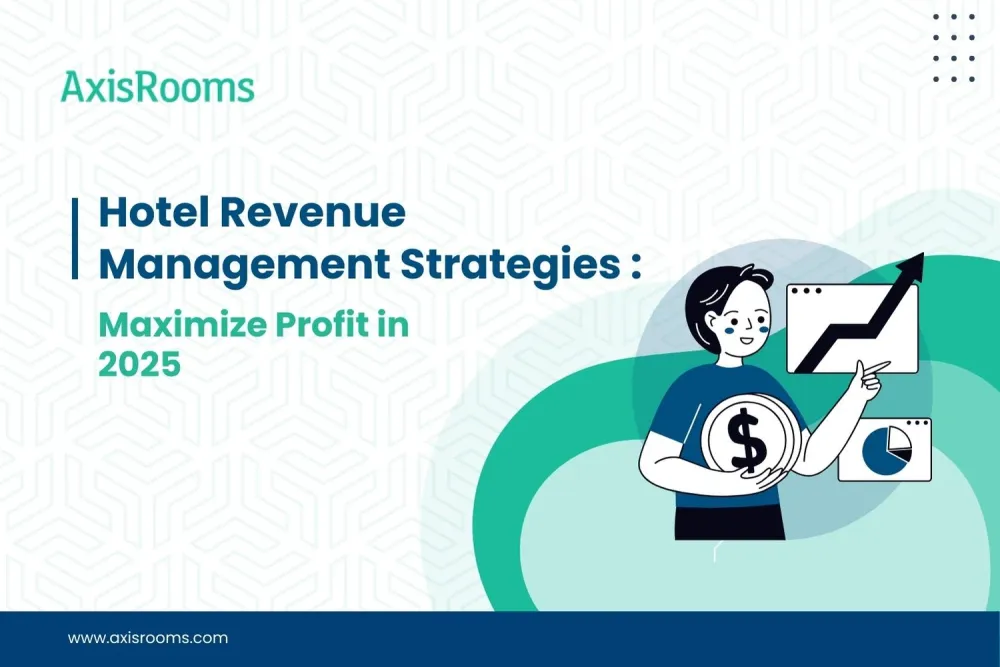In today’s competitive hospitality landscape, offering good rooms and services is no longer enough to maximize revenue. Hoteliers need innovative strategies that go beyond the basics to achieve sustained growth and profitability. This guide outlines 20+ strategies to increase your hotel revenue, offering actionable tips that address key areas of hotel management and guest engagement.
1. Implement Dynamic Pricing
Dynamic pricing adjusts room rates in real time based on demand, seasonality, and booking patterns. By leveraging a revenue management system, you can analyze market trends and optimize room rates to maximize both occupancy and profitability. This strategy ensures your pricing reflects current market conditions while maintaining competitiveness.
2. Use Yield Management
Yield management involves predicting demand and tailoring room rates to maximize revenue. By analyzing guest behavior and occupancy patterns, you can fine-tune rates across different distribution channels. Effective yield management helps prevent revenue losses during high-demand periods and ensures optimal occupancy during slower times.
3. Optimize Your Distribution Channels
Expand your reach by using a mix of OTAs, direct bookings, and metasearch engines. A diversified channel strategy ensures higher visibility and occupancy rates. However, it's essential to avoid common hotel distribution management mistakes, such as over-reliance on a single channel or inconsistent pricing, as these can negatively impact your revenue and operations. Balancing your presence across these channels helps you reach a broader audience while maintaining control over your inventory and pricing.
4. Focus on Direct Bookings
Encourage guests to book directly through your hotel website by offering exclusive perks like discounts or complimentary services. Direct bookings save you from OTA commissions and provide greater flexibility in managing customer relationships. A mobile-friendly website with a seamless booking process is essential for driving direct reservations.
5. Offer Special Packages
Create bundled deals that combine accommodation with other services like dining, spa treatments, or local tours. Packages add value for guests and encourage extended stays. Highlight these packages prominently on your website and across marketing channels to attract different customer segments.
6. Leverage Loyalty Programs
Implement loyalty programs to reward repeat guests with points, discounts, or exclusive experiences. This fosters long-term relationships and encourages repeat bookings. Use personalized communication to remind guests of their loyalty rewards and promote exclusive member-only offers.
7. Utilize Seasonal Promotions
Target local travelers during low seasons with promotions like staycations, themed events, or discounted rates. Seasonal offers can attract last-minute bookings and help maintain revenue streams during slower periods. Use creative marketing campaigns to make these promotions stand out.
8. Upsell Room Upgrades
Encourage guests to upgrade rooms by highlighting enhanced amenities or offering discounted upgrade options. Present these offers during the booking process or upon arrival. Effective hotel upselling strategies like these provide an easy way to increase per-guest revenue with minimal additional costs while enhancing the guest experience.
9. Optimize Food and Beverage Services
Increase food and beverage revenue by offering unique dining experiences such as themed dinners, happy hours, or cooking classes. In-room dining packages can also appeal to guests seeking convenience. Promote these options effectively to both in-house guests and local visitors.
10. Utilize Digital Marketing
Invest in SEO and digital marketing to drive traffic to your website. Use targeted ads, email campaigns, and social media promotions to boost visibility. Implementing effective hotel digital marketing strategies, such as creating engaging content that highlights your hotel’s unique features and special offers, can help capture attention and convert visitors into loyal guests.
11. Focus on Mobile Bookings
With the rise of mobile bookings, ensure your website is optimized for mobile devices. A smooth mobile booking experience can significantly increase conversions. Include a simplified booking form and ensure fast loading times to enhance the user experience.
12. Host Events and Conferences
Maximize your hotel’s event spaces by hosting corporate meetings, weddings, or conferences. Offer attractive group discounts and tailored packages to entice event organizers. Providing exceptional service during events can lead to repeat bookings and positive word-of-mouth referrals.
13. Personalize Guest Experiences
Use guest data to tailor experiences, such as offering preferred room types or surprise amenities. Personalized service enhances guest satisfaction and builds loyalty. Collecting and analyzing guest preferences allows you to deliver experiences that exceed expectations.
14. Collect and Analyze Guest Feedback
Actively gather and analyze guest feedback to improve services and address concerns. Positive reviews boost your online reputation and attract more bookings. Responding to feedback promptly demonstrates your commitment to guest satisfaction.
15. Create Strategic Partnerships
Collaborate with local businesses or tour operators to offer exclusive deals. Partnerships enhance your offerings and attract diverse guest segments. Highlight these partnerships in your marketing efforts to appeal to travelers looking for comprehensive experiences.
16. Streamline Operations with Technology
Adopt cloud-based solutions to automate tasks like check-ins, room allocation, and billing. Streamlined operations free up staff to focus on guest experiences. Implementing technology that simplifies day-to-day operations also reduces errors and enhances efficiency.
17. Optimize Staff Schedules
Efficiently manage staff schedules based on occupancy trends. Balanced staffing reduces operational costs and ensures adequate coverage during peak periods. A well-scheduled team contributes to seamless guest service and higher satisfaction.
Read Also - Digital Guest Registration: Better Efficiency, Happier Guests
18. Implement Energy-Saving Measures
Introduce energy-efficient lighting, HVAC systems, and water-saving initiatives to reduce costs and appeal to eco-conscious travelers. Promoting these efforts can enhance your brand’s image as a responsible business.
19. Engage Guests on Social Media
Leverage platforms like Instagram and Facebook to engage with potential guests. Run promotions, share guest stories, and create interactive content to build brand loyalty. Engaging visuals and videos can capture attention and inspire bookings.
20. Use Data Analysis for Decision-Making
Analyze guest preferences, booking trends, and revenue data to fine-tune pricing, marketing, and services. Data-driven decisions ensure your strategies align with market demands and guest expectations, maximizing your revenue potential.
Bonus Strategies for 2025
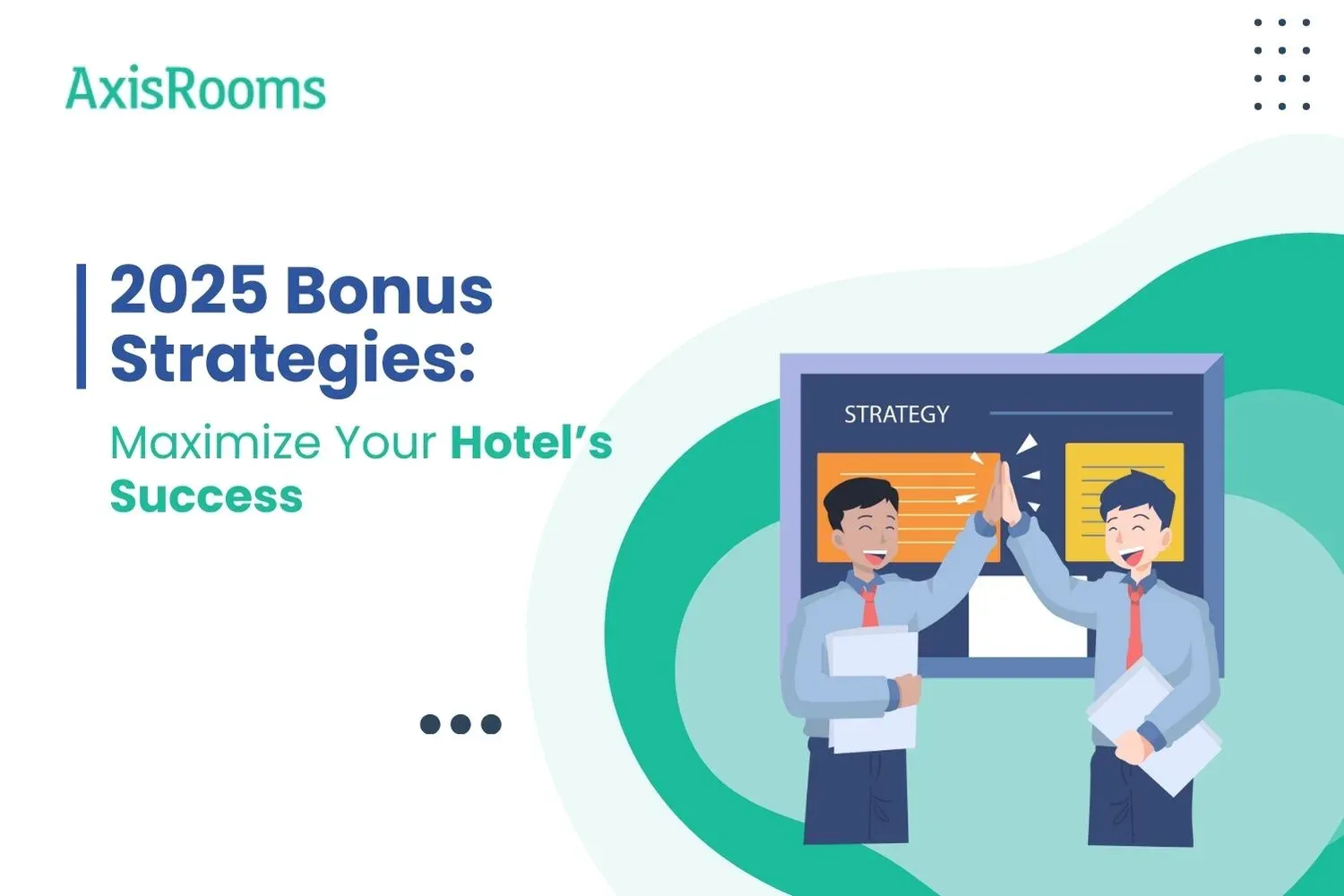
21. Focus on Guest Retention
Encourage repeat bookings by offering personalized incentives, such as discounts on future stays or exclusive perks for returning guests. Retention strategies reduce the cost of acquiring new customers and foster loyalty.
22. Invest in Staff Training
Well-trained staff create exceptional guest experiences, leading to positive reviews and repeat bookings. Regular training ensures consistency in service quality and empowers your team to handle guest needs effectively.
23. Leverage Automation Tools
Automate repetitive tasks like invoice generation, inventory updates, and guest communication. Automation improves operational efficiency and frees up staff to focus on delivering personalized guest experiences.
Read Also - Last-Minute Hotel Deals: A Winning Strategy for Hotels
24. Capitalize on Local Tourism
Collaborate with local tourism boards or businesses to promote your hotel as a hub for local events, festivals, or attractions. Creating packages that highlight regional experiences can attract travelers seeking authentic cultural or leisure opportunities.
25. Offer Flexible Cancellation Policies
Providing guests with flexible cancellation options can increase bookings by reducing hesitation during uncertain times. Highlighting a guest-friendly approach builds trust and can lead to increased reservations, particularly during volatile travel periods.
FAQs
How to increase revenue in the low season? Focus on staycation packages, discounted rates, and local collaborations to attract nearby travelers.
How to increase hotel restaurant revenue? Offer themed dining experiences, special set menus, and promotions for local patrons to boost F&B sales.
How can data analysis increase hotel revenue? Data analysis helps identify trends and preferences, enabling informed decisions about pricing, marketing, and services.
Boost Your Hotel Revenue Today
By implementing these 20+ strategies, you can maximize your hotel revenue potential while ensuring exceptional guest experiences. Explore how adopting innovative practices can transform your hotel into a revenue powerhouse.
How AxisRooms Channel Manager Can Boost Your Hotel Revenue
Why AxisRooms Channel Manager?
1. Seamless Distribution
- Effortlessly manage room inventory and rates across multiple OTAs, direct booking platforms, and metasearch engines from a single dashboard.
- Ensure consistent pricing across all channels, maintaining guest trust and avoiding rate discrepancies.
2. Real-Time Updates
- Instantly synchronize room availability and pricing, reducing the risk of overbooking or missed opportunities.
- Stay competitive in a dynamic market with automatic updates based on demand and occupancy.
3. Enhanced Channel Visibility
- Improve occupancy rates by targeting diverse guest segments through various platforms.
- Expand your hotel’s reach by connecting to a wide range of OTAs and distribution partners.
4. Time and Cost Efficiency
- Automate routine tasks, freeing up your staff to focus on delivering exceptional guest experiences.
- Save costs by eliminating manual errors and minimizing dependency on third-party tools.
5. Data-Driven Insights
- Access detailed performance reports to understand your most profitable channels and refine your distribution strategy.
- Use actionable insights to optimize rates and occupancy based on market trends.
Conclusion: Elevate Your Distribution Strategy
By implementing these 25 proven strategies, you can maximize your hotel’s revenue potential while ensuring exceptional guest experiences. Combine these techniques with powerful tools like the AxisRooms Channel Manager to streamline operations, enhance distribution, and achieve sustained profitability.
Start today and see the difference.

